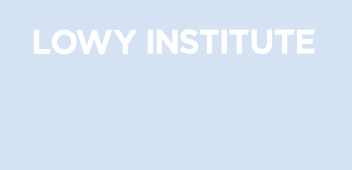Prosperity, safety our big worries
Michael Fullilove and Alex Oliver, originally published in The Australian, 16 June 2015.

Executive Summary
Australians seem to be more worried about their security and more pessimistic about their prosperity than at any time in the past decade.
The 2015 Lowy Institute Poll, released today, also suggests that voting-aged Australians are not confident about the Abbott government’s ability to handle some of the core areas of international policy, including areas in which the Coalition has traditionally enjoyed strong support, such as managing the economy and the issue of asylum-seekers.
The poll has recorded the lowest feeling of safety among Australians in our 11-year polling history. Fewer than one in four adults (24 per cent) say they feel “very safe”.
Accompanying this is the sharpest decline in optimism about the nation’s economic performance in the world over the past decade. Just 9 per cent of Australians are “very optimistic” about the economy, with 63 per cent optimistic overall — a very significant 23-point drop since 2009 and 2010 when optimism reached an all-time high, even in the midst of the global financial crisis.
What are they so worried about?
Unsurprisingly, terrorism tops the list. Terrorism-related risks rank first, second and third in Australians’ threat perceptions.
Indeed, Australians seem so concerned about it that they strongly back action in the Middle East to address the threat. In a striking set of results, almost 70 per cent of Australians support our military involvement in Iraq, despite an awareness of the potential risks involved: 55 per cent believe it increases the risk of terrorism to Australia now, and just 20 per cent say it makes Australia safer from terrorism in the future.
Significantly, terrorism also ranks well ahead of other potential threats, such as conflict between China and the US, in Australians’ threat perceptions. This does not mean, however, that Australians are completely sanguine about the rise of China.
While concerns have eased somewhat this year, nearly four in 10 (39 per cent) say it is likely China will become a military threat to Australia in the next 20 years, and the majority (66 per cent) say “Australia should do more to resist China’s military aggression in our region, even if this affects our economic relationship”.
Despite this wariness, our 2015 poll finds that most Australians see China as “more of an economic partner” than “military threat”, and we know from our decade of polling that Australians see their fortunes as being closely tied to China’s economic rise.
However, their idea of economic partnership appears not to extend to homeownership: 70 per cent say the government allows too much investment from China in residential real estate.
Climate change is another issue that seems to be concerning Australians. For the third year in a row, the poll has recorded a rise in the number of Australians who express the highest level of concern about global warming.
Exactly half the population (up 5 points since last year and 14 points since 2012) now see global warming as “a serious and pressing problem [about which] we should begin taking steps now even if this involves significant costs”. This is the highest result on this question since 2009.
Equally startling is how Australians see the nation’s energy future. When we asked which one of seven possible energy sources Australians “think will be our primary source of electricity 10 years from now”, solar energy is the clear winner, with 43 per cent selecting this as Australia’s primary source of electricity in 10 years’ time.
Only 17 per cent see coal as the primary energy source in 10 years. A surprisingly large 13 per cent of the population nominate “nuclear energy”, despite the fact Australia has no nuclear power plants, and no prospect of having them.
Against this background of growing concern about security and prosperity, Australians hold a mixed set of views on the Abbott government’s ability to respond to their concerns.
When it comes to security issues, the government polls well, with Australians giving it a strong 7.1/10 for “maintaining a strong alliance with the United States” and a solid pass (5.9/10) for “responding to the threat of terrorism”.
But the government gets failing grades in what are usually seen as core areas of Coalition policy: asylum-seekers, climate policy and management of the economy.
Despite having implemented its Operation Sovereign Borders policy, the Abbott government is given a mark of 4.9/10 for “handling the arrival of asylum-seekers by boat”.
On economic management, the government also gets 4.9/10. And it scores a poor 4/10 for “managing the issue of climate change”.
In fact, on climate change, most Australians want the government to be more active.
Nearly two-thirds (63 per cent) say that in the lead-up to the UN climate conference in Paris later this year, the government “should commit to significant reductions so that other countries will be encouraged to do the same”. Only 35 per cent take the opposing view that the government “should not make significant commitments on emissions reductions ahead of other countries”.
After a year marked by an unusual intensity in Australia’s interactions with the world, our 2015 poll finds many Australians who see the world as a bleak place. These findings present a clear challenge to the government to lift the nation’s mood and instil in it the confidence to succeed in these testing times.
The Lowy Institute Poll 2015 reports the results of a nationally representative telephone survey of 1200 Australian adults conducted between February 20 and March 8, 2015, by I-view, together with supplementary polling by Newspoll in February, April and May 2015. The error margin for the poll is approximately +/- 2.8 per cent.
Michael Fullilove is executive director of the Lowy Institute. Alex Oliver is the program director for the Lowy Institute Poll.

